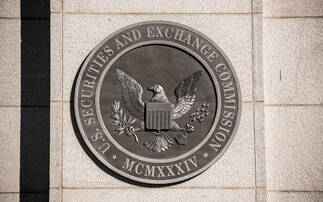Why would you describe this fund as a 'one to watch' and how could the strategy work in investors' portfolios?
In the UK, there continues to be a focus on so-called old-world versus new-world companies. However, as this strategy is new to the market, we have no emotional bias towards any individual company. The framework we apply simply seeks to identify companies displaying an attractive return profile and sustainable cash generation. Interestingly, this takes us across most sectors - in what are generally described as old-world capital-intensive companies and new-world asset light companies.
One of the key areas of differentiation of this portfolio is the ability to draw on the resources of T. Rowe Price's renowned 300-strong global research platform, which operates across multiple asset classes. When you look at the UK market, a large proportion of its exposure is global, so T. Rowe Price's global perspectives provide a real point of differentiation and edge.
We purposefully attached the ‘Responsible' label to this strategy and the other major component embedded in our philosophy is our focus on the sustainability of returns - which encompasses each of the ‘E', ‘S' and ‘G' elements of ESG. Given the directional push for ESG considerations at a societal level, it is going to be difficult for companies to sustain returns over the long term without embedding ESG dynamics and thinking into business strategy and capital allocation.
It is true, the UK has not been a destination of choice for investors - particularly since the EU referendum in 2016. In terms of asset flows, it has undoubtedly been easier to avoid the market than dedicate major resources to it. However, with Brexit-related uncertainty receding recently, we certainly see opportunity for investors to revisit the UK. While some post-Brexit trade friction is likely, the companies we feel have a superior roadmap to durable value generation will be able to thrive irrespective of how the near-term trading environment develops.
Can you give a brief overview of your strategy in terms of what you are trying to achieve for investors, your investment process and the make-up of the investment team?
The Responsible UK Equity Fund is a bottom-up strategy, which is largely benchmark agnostic. We can explore all areas of the market, from FTSE constituents to AIM. Like everything we do at T. Rowe Price, we are focused on the client first and we are confident we can generate positive investment returns in this market over the long term.
When we look at the UK market, we are seeking to unearth businesses we call ‘durable compounders'. In the UK, there continues to be a focus on so-called old-world versus new-world companies. However, as this strategy is new to the market, we have no emotional bias towards any individual company. As mentioned, the framework we apply simply seeks to identify companies displaying an attractive return profile and sustainable cash generation. Interestingly, this takes us across most sectors - in what are generally described as old-world capital-intensive companies and new-world asset light companies.
In managing the fund, Portfolio Manager Mitchell Todd makes use of T. Rowe Price's deep analyst resources as well as drawing on his own experience.
Can you identify a couple of key investment opportunities for your fund you are playing at the moment in the portfolio? This could be at a stock, sector or thematic level.
We currently have about 50 or so names in the portfolio, with large overweight positions in the consumer discretionary, industrials and healthcare sectors. On the flipside, we have no direct energy exposure and very little materials, while we are underweight consumer staples. Our ambition is to minimise turnover in this strategy and are aiming to keep it in the 10-20% range. We have excluded about 10% of the FTSE All-Share Index - which spans areas such as gambling, weapons and mining companies exposed to thermal coal.
Mitchell Todd's belief for the last 20 years has been relatively simple - the market often underappreciates the sustainability of returns and misprices the potential to compound value over the long term. Therefore, much of our fundamental analysis is to try to identify businesses capable of sustaining attractive returns on capital and cash flow growth - alongside other responsibility and sustainability drivers.












